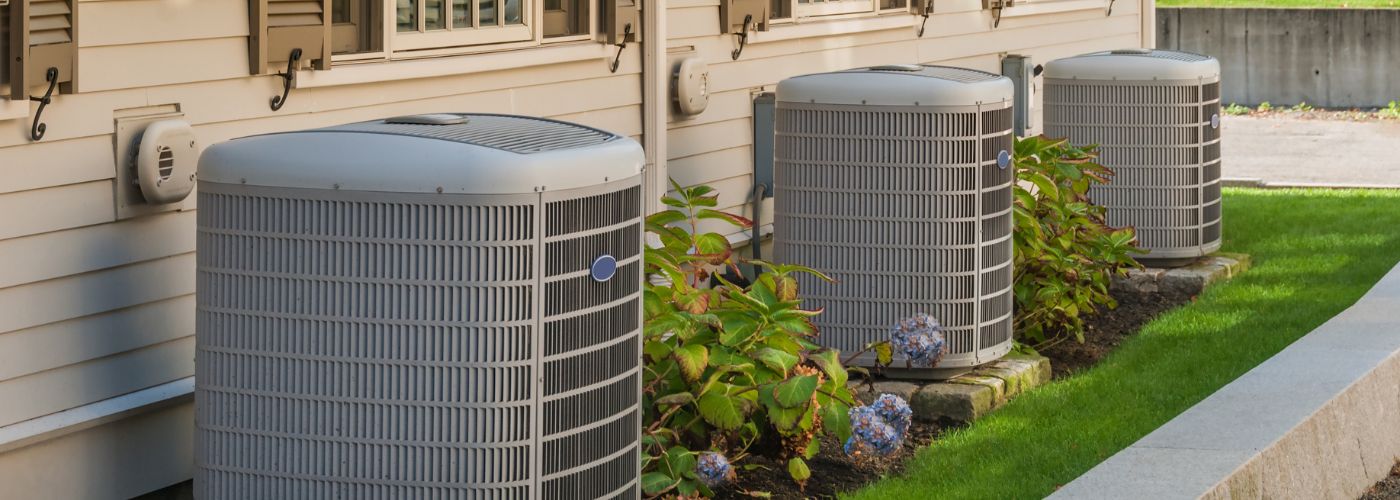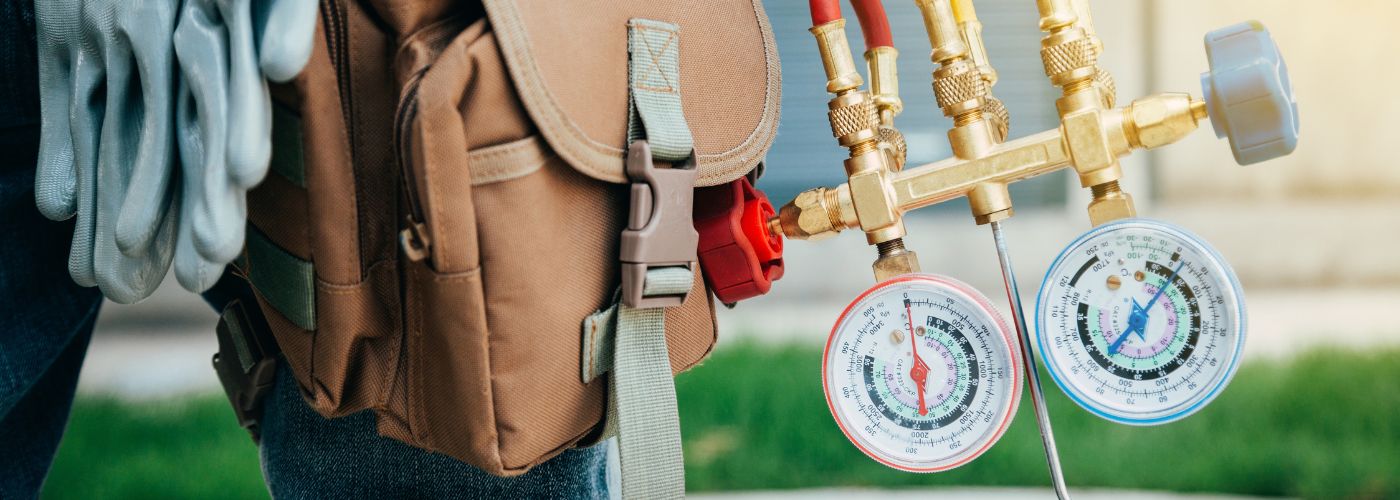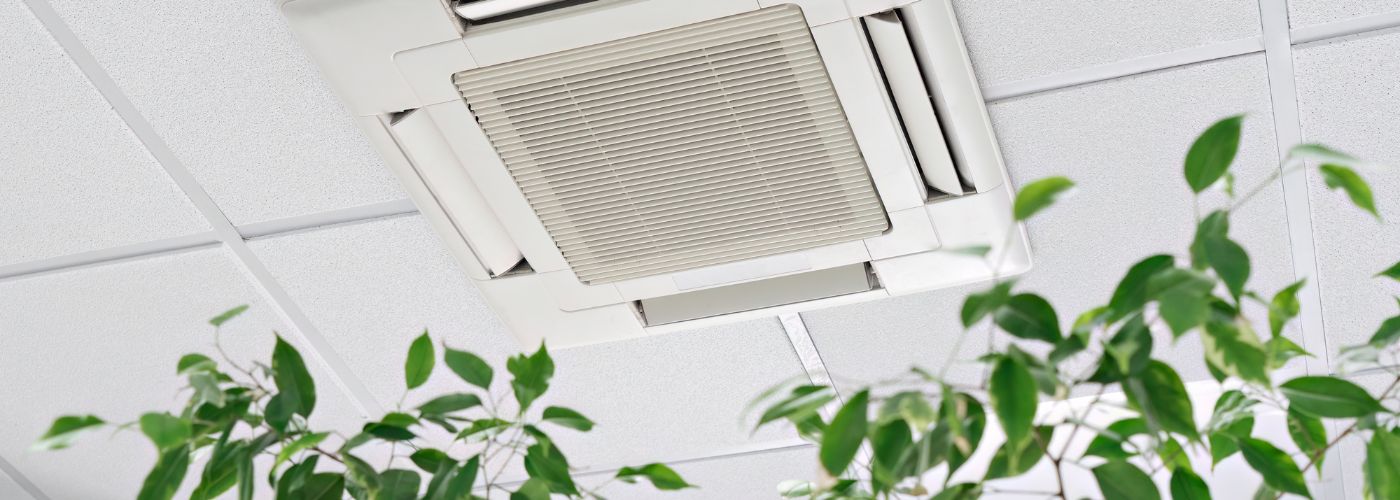Is your indoor air quality for your home or business a concern for you? One way to take control of your air quality and maintain great temperatures is with HVAC Zoning. However, what is HVAC Zoning? In the blog, we’ll be breaking down what HVAC Zoning is and its benefits for your air quality.
How Does HVAC Zoning Work
HVAC zoning systems are becoming more and more popular in newer homes. But how do they work? HVAC zoning systems allow you to control the temperature in different areas of your home independently from each other.
This can be especially useful if you have a large home with many rooms, or if you have rooms that are used differently throughout the day.
For example, you may want to keep the living room and kitchen at a comfortable temperature during the day, but at night, when everyone is in bed, you may want to lower the temperature in those rooms to save on energy costs.
With an HVAC zoning system, you can set different temperatures for different zones of your home and control them all from one central location.

HVAC zoning systems typically consist of a central controller that is connected to multiple thermostats throughout the house.
Is HVAC Zoning Worth It
HVAC zoning systems are becoming increasingly popular in new homes. Many homeowners are wondering if they are worth the investment.
HVAC zoning systems can save you money on your energy bills by allowing you to control the temperature in different areas of your home. You can set different temperatures for the day and night, or for when you are home and when you are away.
HVAC zoning systems can also improve the comfort of your home by ensuring that each room is at the perfect temperature. No more arguing over who gets to control the thermostat!

If your home has a central HVAC system, you may be able to add zoning to it. Zoning involves dividing your home into different “zones,” each with its own temperature control. This can be especially helpful if you have rooms that are always too hot or too cold.
Adding a zoning system to your HVAC system is not a do-it-yourself project. You’ll need to hire a professional HVAC contractor to do the job. But it’s worth it, because once the system is in place, you’ll be able to customize the temperatures in different areas of your home to suit your needs.
If you are considering an HVAC upgrade for your home then ask an HVAC Company in Los Angeles. It may be worth the investment!
Can HVAC Zoning Be Added To An Existing System
If your home has a central HVAC system, you may be able to add zoning to it. Zoning involves dividing your home into different areas, or zones, each with its own thermostat. This allows you to set different temperatures for different areas of your home. For example, you may want the living room to be warmer than the bedrooms.
Adding zoning to an existing HVAC system can be complicated and expensive. You’ll need to have a professional assess your home and HVAC system to see if it’s possible.
If it is, they’ll need to install new ductwork and thermostats. This can be a major project, so make sure you get multiple quotes before hiring a contractor.

Can Zoning Reduce HVAC Bills?
There are many benefits that come with having a properly zoned HVAC system in your home. Not only can it help to improve the overall comfort of your home, but it can also help to reduce your energy bills. Here are a few ways that zoning can help reduce your HVAC bills:
1. Zoning can help to evenly distribute the heat or cooling throughout your home, which can lead to a more efficient operation of your HVAC system or AC condenser.
2. With each zone, you can better control the temperature in each room or area of your home, which can further improve efficiency and lead to lower energy bills.
3. Properly zoning your HVAC system can also help to extend its lifespan by reducing the overall wear and tear on the unit.
Frequently Asked Questions (FAQ)
HVAC zoning allows you to control temperatures in different areas of your home independently, meaning you can keep frequently used spaces comfortable without overheating or overcooling unused rooms. This creates a more consistent indoor environment and eliminates issues like hot and cold spots throughout the house.
For many homeowners, zoning is absolutely worth it. By heating or cooling only the areas you’re actively using, zoning can significantly reduce energy waste and lower monthly utility bills. It also gives you greater control over comfort, making it easier to maintain ideal temperatures in every part of your home.
In many cases, yes—zoning can be added to an existing system, but it typically requires professional installation. A technician will assess your current ductwork, install dampers, and add additional thermostats to create separate zones. Because this process can be complex, an expert evaluation is the best way to determine feasibility and cost.
